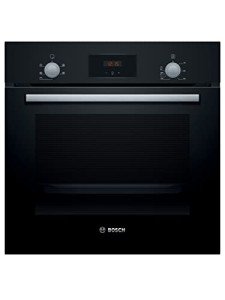Ten Built In Ovens That Really Make Your Life Better
본문
The Comprehensive Guide to Built-In Ovens
Introduction
Built-in ovens are a staple in contemporary kitchen areas, integrating elegance with performance. They use a smooth visual and effective cooking abilities, making them a preferred option for property owners and culinary lovers alike. This article looks into the benefits of built-in ovens, their numerous types, key features to consider, installation ideas, and maintenance guidance, in addition to frequently asked concerns.

Benefits of Built-In Ovens
Built-in ovens come with a variety of advantages that add to their popularity. Here are some key benefits:

- Space-Saving Design: Built-in ovens are developed to fit seamlessly into cabinets, enabling a more orderly and space-efficient kitchen layout.
- Aesthetic Appeal: They offer a sleek and contemporary look that can improve the overall design of the kitchen.
- Improved Functionality: Built-in ovens often include advanced features and technologies that support various cooking methods.
- Enhanced Cooking Experience: Many built-in designs include self-cleaning functions, temperature probes, and programmable settings, improving the cooking experience.
- Increased Property Value: A well-designed kitchen with built-in appliances can enhance the worth of a home.
Types of Built-In Ovens
Built-in ovens been available in several types, each created to meet numerous cooking choices and needs. Here are the primary types:
| Type of Built-In Oven | Description |
|---|---|
| Single Oven | A single, standalone oven for conventional baking and roasting. |
| Double Oven | Integrates two ovens in one unit, permitting multiple meals to prepare at different temperature levels. |
| Wall Oven | Installed in the wall, maximizing counter area, suitable for little cooking areas. |
| Stove | Uses fans to flow hot air for even cooking, boosting the results of baked products. |
| Steam Oven | Uses steam for much healthier cooking choices, maintaining nutrients in food. |
Secret Features to Consider
When picking a built-in oven, numerous functions can affect performance and usability. Here are some essential functions to remember:
Cooking Modes
- Bake: Built-in ovens Traditional baking with bottom heat.
- Broil: Top heat cooking ideal for browning and crisping.
- Convection: Circulates hot air for even cooking.
- Steam: Uses steam for healthier cooking options.
Size and Capacity
- Standard sizes typically range from 24 to 30 inches large.
- Think about the internal capability-- it can range from 3 to 6 cubic feet, enabling for different meal sizes.
Controls and Smart Features
- Touchscreen Controls: Easy programs and adjustments.
- Smart Technology: Connectivity features enable remote tracking and control via smartphone applications.
Energy Efficiency
- Try to find models with ENERGY STAR scores, suggesting lower energy intake.
Security Features
- Functions like auto shut-off and child locks enhance safety during operation.
Setup Tips
Setting up a built-in oven may need expert support, however here are some basic suggestions to bear in mind:
- Choose the Right Location: Ensure there's adequate space in your cabinetry for setup, keeping in mind ventilation requirements.
- Electrical Requirements: Check that your kitchen's electrical wiring meets the oven's power requirements, specifically for intergrated electric oven models.
- Level the Oven: Ensure the oven is level to promote even cooking.
- Secure the Oven: Attach it strongly to the kitchen cabinetry to avoid motion throughout use.
Maintenance Advice
Regular upkeep is essential for the durability and usellbuybid.com effectiveness of a built In ovens-in oven. Here's how to keep it in top shape:
- Regular Cleaning: Wipe down surfaces after each usage and perform deep cleaning regularly.
- Check Seals: Inspect door seals for wear and guarantee they maintain an airtight fit to improve energy effectiveness.
- Calibrate Temperature: If food consistently comes out overcooked or undercooked, consider recalibrating the oven's temperature settings.
- Professional Servicing: Schedule annual check-ups with a trained specialist to maintain optimal efficiency.
Frequently asked questions
What is the distinction in between a built-in oven and a freestanding oven?
Built-in ovens are designed to be installed within cabinetry, offering a seamless appearance. On the other hand, freestanding ovens are standalone units that usually include their own cooktop.
Are built-in ovens more pricey than freestanding models?
Generally, built-in ovens can be more pricey due to the included installation costs and advanced features. Nevertheless, prices vary extensively based on brand name, size, and functionalities.
Can I install a built-in oven myself?
While it is possible to install a built in ovens uk-in oven yourself, it is recommended to work with a professional to make sure proper setup, especially if adjustments to cabinets or electrical work are required.
How typically should I clean my built-in oven?
It is recommended to clean your Built in ovens electric-in oven regularly after heavy usage. For much deeper cleanings, utilize the self-cleaning function if readily available or periodically carry out manual cleansing to avoid build-up.
Built-in ovens are an important addition to any kitchen, providing both visual appeal and advanced cooking abilities. By understanding their types, functions, setup, and maintenance requirements, property owners can make informed options that boost their cooking experience and improve the overall worth of their homes. As kitchen styles continue to progress, built-in ovens will likely remain a popular option for contemporary homes.

